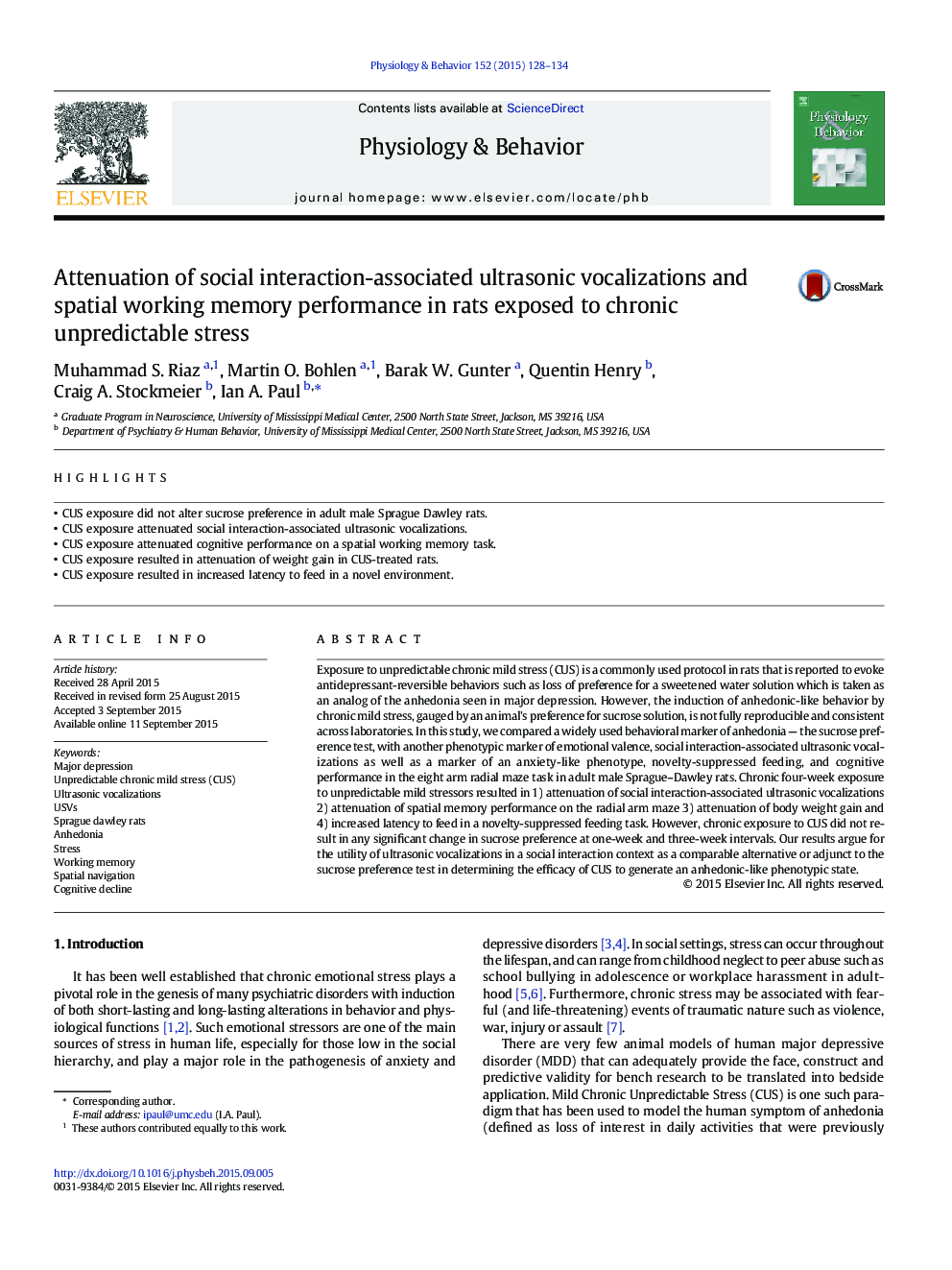| Article ID | Journal | Published Year | Pages | File Type |
|---|---|---|---|---|
| 5923054 | Physiology & Behavior | 2015 | 7 Pages |
Abstract
Exposure to unpredictable chronic mild stress (CUS) is a commonly used protocol in rats that is reported to evoke antidepressant-reversible behaviors such as loss of preference for a sweetened water solution which is taken as an analog of the anhedonia seen in major depression. However, the induction of anhedonic-like behavior by chronic mild stress, gauged by an animal's preference for sucrose solution, is not fully reproducible and consistent across laboratories. In this study, we compared a widely used behavioral marker of anhedonia - the sucrose preference test, with another phenotypic marker of emotional valence, social interaction-associated ultrasonic vocalizations as well as a marker of an anxiety-like phenotype, novelty-suppressed feeding, and cognitive performance in the eight arm radial maze task in adult male Sprague-Dawley rats. Chronic four-week exposure to unpredictable mild stressors resulted in 1) attenuation of social interaction-associated ultrasonic vocalizations 2) attenuation of spatial memory performance on the radial arm maze 3) attenuation of body weight gain and 4) increased latency to feed in a novelty-suppressed feeding task. However, chronic exposure to CUS did not result in any significant change in sucrose preference at one-week and three-week intervals. Our results argue for the utility of ultrasonic vocalizations in a social interaction context as a comparable alternative or adjunct to the sucrose preference test in determining the efficacy of CUS to generate an anhedonic-like phenotypic state.
Keywords
Related Topics
Life Sciences
Biochemistry, Genetics and Molecular Biology
Physiology
Authors
Muhammad S. Riaz, Martin O. Bohlen, Barak W. Gunter, Quentin Henry, Craig A. Stockmeier, Ian A. Paul,
